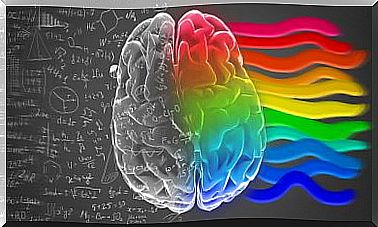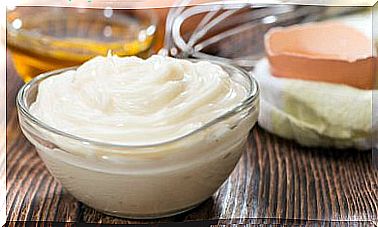How To Prevent Or Reduce Anxiety?
Is it possible to reduce anxiety? The answer is yes. Currently, there are multiple strategies that can be learned, trained and applied on a day-to-day basis.
On the other hand, an essential aspect should be noted: when it comes to preventing and mitigating the impact of this psychological condition, there are no strategies that serve everyone equally.
Each person must discover which mechanisms work best for them. Therefore, it is convenient to remember that in case the state of anxiety overcomes you at some point, it is advisable to ask a psychologist for help.
Decreasing anxiety is an achievable goal, as you will discover below.
Symptoms of anxiety

There is a long list of symptoms that produce high levels of anxiety. Inside it you can find the following:
- Palpitations, racing pulse, tremors, and chest pain.
- Fears, negative thoughts, and a feeling of lack of control.
- Shortness of breath, nausea, dizziness, or dizziness.
- Excessive perspiration, s cold or chills
- Tingling or numbness
- Fear of dying (associated with panic attacks).
Generally, it is common to suffer these symptoms when suffering from particular anxiety disorders, such as phobias, obsessive compulsive disorder or stress post-traumatic.
How to decrease anxiety
Before proceeding to reduce anxiety, it is necessary to have a proper clinical diagnosis. Sometimes behind that state there are other camouflaged conditions. It should not be forgotten, for example, that there are certain depressions that occur with anxiety and that this can also be the effect of post-traumatic disorders.
Therefore, do not hesitate to consult a psychologist to start in the best way. In the same way, as explained by a team from the Neuroscience Institute of the University of California in a study, anxiety is the most common psychological condition, but the least visible.
This means that, often, most people come to normalize these states without responding to them. It is vital, therefore, to learn to identify and reduce it.
Practice mindfulness
The psychologists Stefan G. Hofmann, Alice T. Sawyer, Ashley A. Witt and Diana Oh conducted a study in 2010 in which the effects of mindfulness or mindfulness in the treatment of anxiety and depression were exposed .
This meditation-based approach applied to people with anxiety provides the following benefits:
- Promotes a relaxed state of mind.
- It makes it easier for the person to get in touch with the present moment and to learn to identify their feelings, thoughts, emotions and everything that happens in their environment.
- It helps to make contact with the own needs to make changes.
Thus, this type of practice with Buddhist roots stands as a good method to prevent and reduce anxiety.
Check your thoughts
It may seem silly to you, but checking your thoughts is one of the most effective ways to reduce anxiety. Most of the time we mindlessly spin around problems that are not such a big deal or are not even going to happen in the future.
Expectations and the inability to focus on the present are great allies of anxiety. Therefore, you must learn to give each thing its proper importance. Try to generate realistic thoughts and put aside those that have to do with future concerns and situations.
When faced with a stressful problem or situation, focus on seeing the glass as half full, not half empty. It is in your power to change the perspective you have of the things that happen to you.
Be careful with food
Eating a healthy diet will make you feel better on all levels. According to the Mayo Clinic , there are no foods in themselves that can alleviate this condition, but it is advisable to modify some habits, such as reducing your intake of caffeine or alcohol, increasing your consumption of protein and carbohydrates, and drinking plenty of water.
In the same way, when you suffer from anxiety, you can increase your intake of unhealthy foods (sweets, industrial pastries, saturated fats). This, in turn, affects the mood, since after bingeing, regrets often come.
Try not to succumb to temptation and stop and think before “attacking” the fridge. Eating heavily will only make you feel better for the first few minutes, but it is not a real relief.
It is better to eat a healthy and balanced diet. Also, if you feel that you cannot control your binge eating, consult a psychologist.
Do physical exercise
A study by a team from the University of Georgia suggests that aerobic exercise may reduce symptoms associated with anxiety.
It is therefore advisable to spend at least one hour a day doing some type of activity of this type. There are many alternatives, such as dancing, swimming, tennis, rope jumping …
Write a diary
No one knows you better than yourself. Keeping a journal is a beneficial way to monitor your mood, your stress levels, and the progression of anxiety.
Many people find that writing down their problems makes it easier for them to identify them and, consequently, they can deal with them more quickly.

Avoid unhealthy substances
There are people who turn to tobacco, alcohol and other drugs as a momentary relief from stressful situations. However, these types of habits have harmful consequences and effects both physically and psychologically.
If you are addicted and need help to quit smoking or using drugs, talk to your doctor and seek help from support groups.
Decrease anxiety by doing things you like
Something that could help you reduce anxiety is spending quality time. Therefore, it is recommended that at least once a week you have a day to yourself.
This can serve as your weekly motivation. Knowing that you are going to have that day to do what you want can help you reduce tensions, plan goals and get excited.








